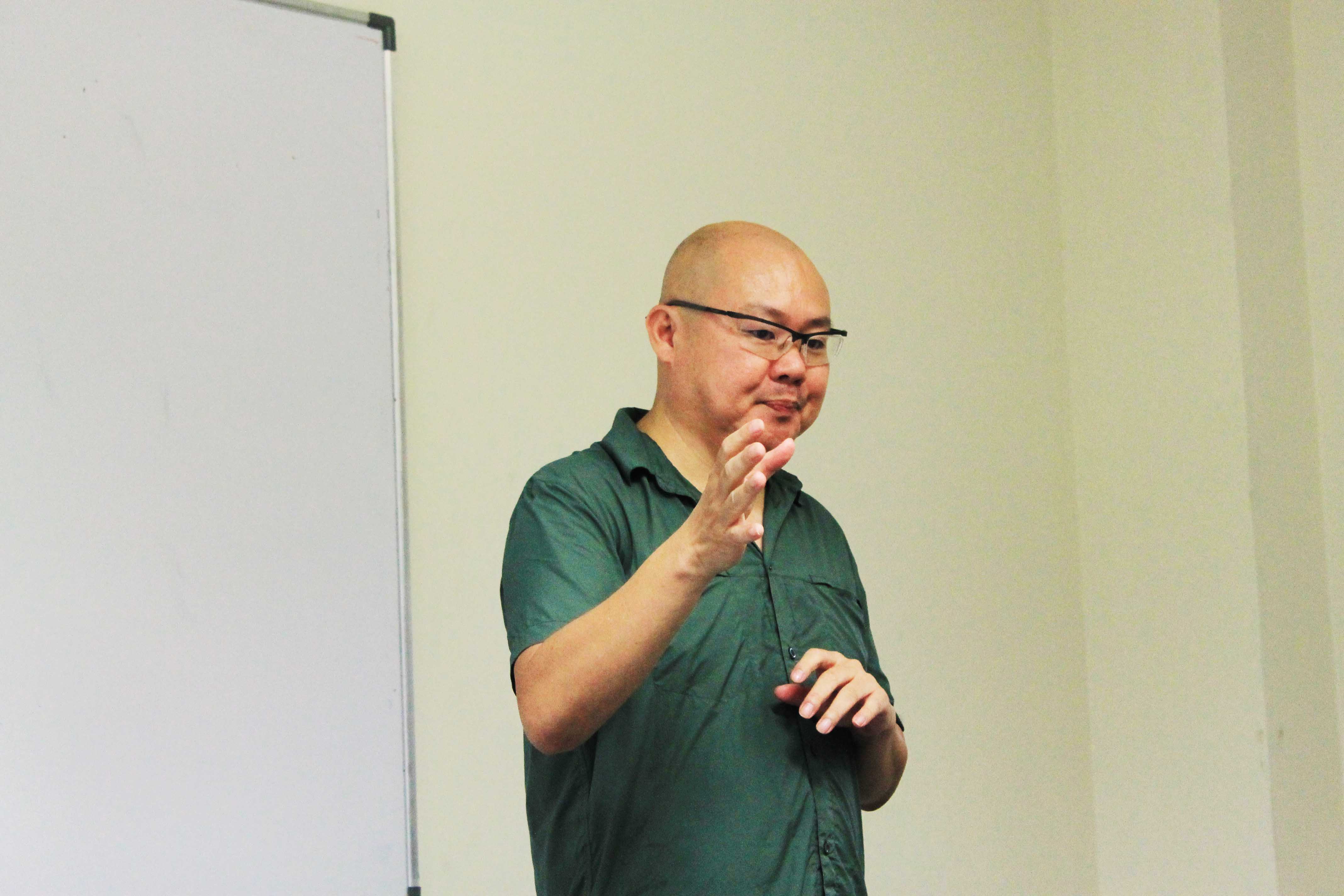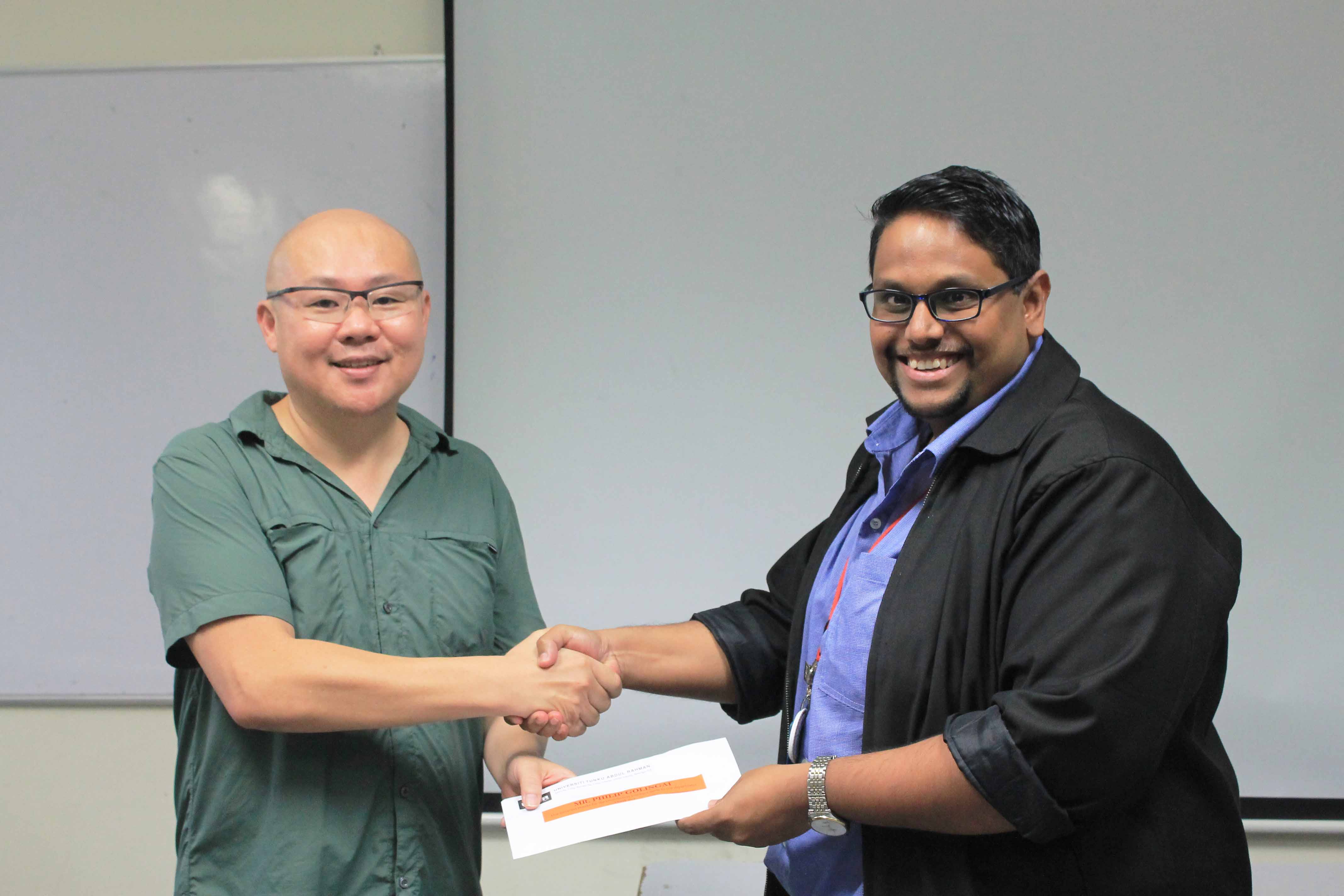
“With the advancement of technology, professions such as journalism is completely reliant on the media, specifically social media in order to convey stories,” said The Star Online Editor-cum-FAS Industry Advisor Philip Golingai at the workshop held at Kampar Campus on 16 November 2018.

Philip sharing his experience about journalism in the age of social media
Titled “Social Media Journalism”, the workshop was organised by UTAR Faculty of Arts and Social Science’s (FAS) Department of Journalism. It aimed at enlightening young students specifically the Journalism students on how technology and social media have changed journalism in the current era.
The two-hour talk shed lights on topics such as how do social media impact the news, how do social media affect newsroom operations in reporting a news event, how social media affect the way journalists receive, gather and distribute news and what does it mean for the future of news.
Sharing his experience about journalism in the age of social media, Philip elucidated, “In my opinion, with technologies and social media, journalism is not dead but merely evolving. Formerly, journalism used to be reliant on newspapers to convey stories, now it has transformed into using websites that can be accessed from computers, smartphones and even smartwatches. It is undeniably true that the technology, in order to capture and create content, has tremendously impacted journalism. The stories are able to be published and circulated worldwide in a matter of seconds with the use of the internet.”
During the workshop, he also advised the students, “The journalists of the future have to be more technology-savvy as news organisations become more digital-centric. As known, digital content can be delivered anytime, anywhere, to anyone on social media, television, radio, mobile phone or even a tablet. Therefore, now the journalists need to master new skills especially in the aspects of multimedia. The journalists must be able to take photos, videos and shoot live videos in order to release the stories immediately from where they stand.” He emphasised, “However, the advancement of the technology does not mean it has changed the need for a compelling story. The stories still need to be well-written, accurate and credible as journalism should be.”
While it has numerous benefits, social media journalism has its own disadvantages. Philip explained, “As a result of the advancement of technology, the media is more accessible and manipulative than ever. Contents are able to be published almost immediately and can be viewed by a global audience with either a computer or a mobile phone. In addition to that, the content published on the internet has a huge possibility of being edited easily compared to the traditional hard-copy newspaper.” He also said, “There have been many occasions in which a false news story gains more publicity, reaching the point in which the public believes it.”
He concluded, “Due to the advancement of technology, anyone has the potential to write a news story due to the accessibility of media over technology, regardless of their credibility. The stories published also have the potential to receive a biased view or be manipulated easily.”
The workshop summarised that the web has changed the world and transformed how information is published and consumed. The impact of the web has spread so wide that it affects almost everything in the world including the media. The talk came to an end with a lively Q&A session and a souvenir presentation to Philip by the Head of Department of Journalism M. Edwin Michael.

Edwin (right) presenting a token of appreciation to Philip
© 2019 UNIVERSITI TUNKU ABDUL RAHMAN DU012(A).
Wholly owned by UTAR Education Foundation Co. No. 578227-M LEGAL STATEMENT TERM OF USAGE PRIVACY NOTICE